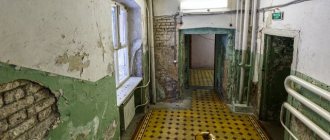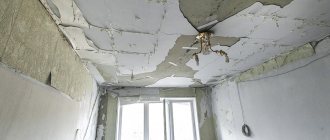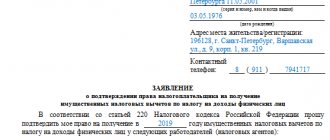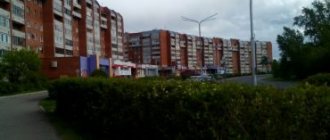If the house is declared unfit for habitation, and there is no new housing to move in, you can independently file a claim with the court for the provision of housing to replace the emergency one. True, this procedure will require preliminary preparation and collection of documents. It is necessary to take into account the characteristics of the plaintiff. And a list of documents attached to the claim. As well as the correct formulation of requirements.
From this article you will learn the nuances: how to independently draw up and file a claim for the provision of housing to replace the emergency one. Use the example below as a basis and carefully study the recommendations.
:
Statement of claim for the provision of housing in place of emergency
Features of going to court
When going to court, you should consider the following:
- Only the tenant (and members of his family) under a social tenancy agreement can file a claim for the provision of housing to replace the emergency one. If you are looking for information about the procedure in the case where residential premises are owned (privatization, sale and purchase, etc.), the correct way to protect your right would be to refer to Parts 8-10 of Art. 32 of the Housing Code of the Russian Federation (taking into account the purchase price of the apartment).
- The prosecutor can also submit documents to the court (you can start the procedure by filing a complaint with the prosecutor’s office) in defense of the rights of the employer
- the housing provided in return must be equal in total area. And be located within the boundaries of the same locality. It will not be possible to apply for better housing, even if a citizen is standing in line as someone in need. The task of the landlord in this case is to provide citizens with equivalent housing in order to eliminate the threat to the lives of residents
- Together with the tenant, family members who lived with him also receive the right to live in new housing
Often, due to the lack of replacement housing, the landlord offers to occupy a premises with less living space. This will violate the tenant's housing rights. It is impossible to force people to move into such housing. But the law allows such a replacement with the consent of all residents.
Rights of owners of residential premises when a residential building is recognized as unsafe:
4.1. Rights of owners of residential premises during the resettlement of emergency houses
The rights of citizens who own apartments when a residential building is recognized as unsafe depend on the grounds for eviction.
Current legislation distinguishes two grounds for the resettlement of citizens from emergency housing:
- resettlement of citizens when a residential building is not included in the regional targeted program for the resettlement of citizens, but a decision has been made to seize the land plot
on which the residential building is located for state or municipal needs; - recognition of a residential building as unsafe and its inclusion in a regional targeted program for the relocation of citizens from emergency housing stock.
In the first case, when MKD
, recognized as emergency and subject to demolition, is not included in the program for the resettlement of citizens from emergency housing stock, the rights of the owner of the residential premises are ensured in the manner prescribed by Art. 32 Housing Code of the Russian Federation.
According to this article, the owner can only count on payment of the redemption price of the seized residential premises. At the same time, state authorities or local self-government
are not obliged to provide the owner of the seized residential premises with other residential premises.
In this case, another residential premises instead of the seized one can be provided to the owner only if there is an appropriate agreement reached with the local government body, and only with the offset of its value when determining the amount of compensation for the seized residential premises (Part 8 of Article 32 of the Housing Code of the Russian Federation; clause 20 Resolution of the Plenum of the Supreme Court of the Russian Federation dated July 2, 2009 No. 14).
In the second case, when an apartment building is included in a regional targeted program for the resettlement of citizens from emergency housing stock, the owners of residential premises have the right to count not only on the repurchase of the seized residential premises, but also on the provision of other residential premises in return.
Moreover, the choice of any of the above methods remains with the owner of the residential premises (Clause 3, Article 2, Article 16 of Law No. 185-FZ dated July 21, 2007; Section 2 of the Review of Judicial Practice, approved by the Presidium of the Supreme Court of the Russian Federation dated April 29, 2014).
The exception is the owners who purchased residential premises after the apartment building was declared unsafe.
Citizens who have acquired ownership of residential premises in an apartment building after it was recognized in the established manner as unsafe and subject to demolition or reconstruction, with the exception of citizens whose ownership of such residential premises arose by inheritance, have the right only to payment of compensation for seized residential premises. In this case, the amount of compensation cannot exceed the cost of acquiring such residential premises.
4.2. Rights of owners of non-residential premises in an unsafe apartment building
Legal consequences of recognition of ICD
emergency and subject to demolition or reconstruction for owners of non-residential premises in apartment buildings are not directly regulated by law.
However, in paragraph 1 of Art. 239 of the Civil Code of the Russian Federation provides that in cases where the seizure of a land plot for state or municipal needs is impossible without termination of ownership of buildings, structures or other real estate located on this site, this property can be seized from the owner through redemption by the state or sale from public auctions in the manner prescribed by the Civil Code of the Russian Federation.
The above rule connects the possibility of compensation for the value of real estate to its owners with the termination of ownership of real estate when a land plot is withdrawn for state or municipal needs
, on which it is located.
This position is confirmed by existing judicial practice. (Decision of the Supreme Court of the Russian Federation dated July 3, 2018 No. 309-KG17-23598 in case No. A50-23011/2016).
4.3. Redemption price, procedure for determining it and other expenses of the owner subject to reimbursement
The redemption price of the seized residential premises is determined according to the rules established by Part 7 of Art. 32 Housing Code of the Russian Federation.
In this case, the amount of compensation for seized residential premises includes:
- market value of residential premises;
- the market value of common property in an apartment building, taking into account its share in the right of common ownership of such property;
- losses caused to the owner by its seizure, including lost profits, as well as the amount of compensation for major repairs not carried out (part 7 of article 32 of the RF Housing Code; section 2 Review of judicial practice, approved by the Presidium of the Supreme Court of the Russian Federation on April 29, 2014).
In any case, the amount of compensation for residential premises, terms and other conditions of seizure are determined by agreement with the owner of the residential premises (Part 6, Article 32 of the Housing Code of the Russian Federation).
Other expenses associated with relocation from a dilapidated house and the owner moving to a new apartment (costs of transportation, apartment selection agency services, costs of paperwork for the purchase and sale of other housing) are usually borne by the citizen making the move. However, in private cases, compensation for expenses incurred (in whole or in part) by municipal authorities is possible. As a rule, such compensation can only be obtained through legal action.
We draw up and submit a claim for the provision of housing to replace the emergency one
Housing disputes fall under the jurisdiction of district (city) courts. A statement of claim for the provision of housing to replace the emergency one must be submitted to the court at the location of the house to be demolished. Particular attention should be paid to evidence in a civil case. There must be a decision of the interdepartmental commission and an order from the government on the further use of housing and the timing of resettlement. Moreover, these documents can be canceled by filing an administrative claim to challenge the decisions of the government authority.
The state fee for consideration of a claim for the provision of housing instead of emergency housing is 300 rubles. The period for consideration of such disputes is at least two months. If there is a decision to recognize the house as unsafe, all participants in the process have been notified and there are no contradictions in the submitted documents, the court will most likely consider it at the first court hearing.
If the parties did not enter into a settlement agreement during the trial and the plaintiff did not send an application to abandon the claim, then, after examining all the arguments of the parties, the court is obliged to make a decision. When living conditions are so unsuitable that they pose a threat to the life or health of persons living in such premises, an application can be filed with the court for immediate execution of the decision.
Regional targeted program for the resettlement of citizens from emergency housing stock
The goal of ensuring a sustainable reduction in the uninhabitable housing stock was set for authorities at all levels back in 2008. However, since today it remains unachieved, its achievement was extended by Decree of the President of the Russian Federation dated May 7, 2017 No. 204.
Currently, the achievement of this goal is planned within the framework of the national project “Housing and the Urban Environment,” which includes, among other things, the federal project for the resettlement of emergency housing “Ensuring a sustainable reduction of unsuitable housing stock.”
It is expected that, based on the successful experience of implementing similar programs in 2013-2017, the parameters for recognizing a residential building as unsafe will be clarified, permanent mechanisms for resettling emergency housing stock will be formed, including by providing the regions with an expanded set of tools, such as: purchase of housing, exchange, subsidies for the acquisition, development of built-up areas, rental houses.
This program for resettlement from dilapidated houses is being implemented by the federal government jointly with regional and municipal authorities in accordance with Federal Law No. 185-FZ dated July 21, 2007 “On the Fund for Assistance to the Reform of Housing and Communal Services.”
According to the norms of this law, a regional targeted program for the resettlement of citizens from emergency housing stock is approved by the executive authorities of the constituent entity of the Russian Federation.
More details
After January 1, 2021, these programs are approved for the period until September 1, 2025.
Regional authorities compile a list of apartment buildings that are recognized in accordance with the established procedure as unsafe and subject to demolition or reconstruction due to physical wear and tear during their operation.
More details
Information on the inclusion of a residential building in the register of emergency buildings is available for review on the official website of the State Corporation - Fund for Assistance to the Reform of Housing and Communal Services www.reformagkh.ru and the Ministry of Construction and Housing and Communal Services of the Russian Federation www.minstroyrf.ru.
The fact of the presence of one or another sign of emergency is not a sufficient basis for the conclusion that a residential building is unsuitable for habitation. The decision to recognize a residential building as unsafe and subject to demolition or reconstruction, in any case, is made in accordance with the established procedure.
Cases of refusal of requests for housing to replace emergency housing
In practice, quite often when considering such claims, the court is forced to refuse to satisfy the claims due to their groundlessness. First of all, this concerns the fact that a decision from the competent authority has not been received to recognize the house as unsafe, dilapidated and unfit for habitation. If major repairs of a residential building are possible, this will also be grounds for refusing to satisfy such a claim.
If you have any questions or doubts when filing a claim, you can use the help of the duty lawyer on our website. And when the court has already made a decision on the claim for the provision of housing instead of emergency housing not in favor of the plaintiff, be sure to use such a tool as an appeal.
Payment and legislative regulation of resettlement
Based on the law, namely Art. 32, if housing is recognized as unsafe, the owners have the right to compensation, the amount of which depends entirely on the value of the property. It is represented by compensation, and during its calculation the location of the house, the area of the apartment and other technical characteristics are taken into account.
The same conditions apply if the plot of land on which the house is built is seized by a court decision , so all owners are entitled to equal monetary compensation.
A special agreement is drawn up between the municipality and each homeowner, which specifies the amount and timing of payment of compensation. Additionally, the period of time during which a citizen can live in the apartment before purchasing a new home is indicated. Typically, no more than 6 months are provided for these purposes.
Is it possible to evict a registered person from a municipal apartment?
By receiving real estate from the state and municipal funds, citizens solve their housing problems without spending money on the purchase of expensive real estate. Unfortunately, some unscrupulous tenants forget that along with the rights to use the apartment, they are endowed with certain responsibilities in relation to the housing itself and their own neighbors.
Failure to comply with the rules for the use of housing, residents face forced removal from a municipal apartment under various conditions:
- with the transfer of another premises for living;
- with cancellation of the right to provide real estate and eviction to the street;
- with voluntary termination of the social tenancy agreement due to relocation;
- forcibly, without asking citizens' consent, based on a court decision.
There are various options for solving the problem of how to evict from a municipal apartment. If the owner is a municipality, he has the right to choose one of the following solutions:
- Relocate to an equivalent or better living space in the event of force majeure, planned demolition of real estate, reconstruction, recognition of housing as unsafe, unsuitable for comfortable living.
- Provide a smaller area or housing with fewer amenities if residents have chronic arrears in paying housing and communal services.
- Organize forced eviction from a municipal apartment without providing other housing in return. The procedure is applied to violators of the rules of cohabitation, causing a lot of concern to neighbors, or when deliberately damaging municipal property. To expel people in need of housing onto the street, the desire of neighbors or the municipality itself is not enough - there will be a trial with hearing of the parties and consideration of positions, since the consequence will be complete deprivation of housing.
Unlike full-fledged homeowners, those living in an apartment under a social lease agreement are more vulnerable when considering the issue of preserving their living space, however, even if there is a desire to get rid of the tenants, the municipality is obliged to follow the established procedure, which includes collecting and submitting compelling reasons to the judicial authority.
Who can use the program
Initially, you need to figure out who is among the subjects in respect of whom this procedure is being carried out.
Important! The program on the basis of which communal apartments are resettled began to operate back in 2007, so over such a significant period of time many people have had the opportunity to become owners of their own separate housing.
Citizens can become participants in the program:
- who are the owners of a room or several premises located in a communal apartment;
- submitted by housing tenants, for which they must have a correctly drawn up social tenancy agreement.
Important! Initially, the resettlement of those apartments is carried out in which all people voluntarily wish to complete this process, and if people have disagreements, the process may drag on.
Even at the very beginning, when this program began to be used, its main condition was the consent to resettlement on the part of all people living in communal apartments, but already in 2015 changes were made, on the basis of which people can leave such apartments and get their own housing without the consent of other residents of the communal apartment.
When is the subsidy paid?
Based on Art. 32 of the Housing Code, if a house is recognized as unsafe, then further residence in it is prohibited; apartment owners can independently choose whether they will receive monetary compensation or other housing. This is possible if an emergency or dilapidated facility is included in the regional resettlement program for citizens. If the building is not included in this program, then only compensation for emergency housing is issued.
An additional payment is assigned if the object is confiscated from the owners by court decision. A sum of money is issued exclusively for emergency housing. If the object is recognized as dilapidated, then people can still live in it, since there is no danger to their life and health.
Important! To recognize housing as unsafe, a special examination is carried out by an interdepartmental commission, including representatives of the local administration, employees of the Ministry of Emergency Situations, housing and communal services workers, specialists from the urban planning committee and other government agencies.








